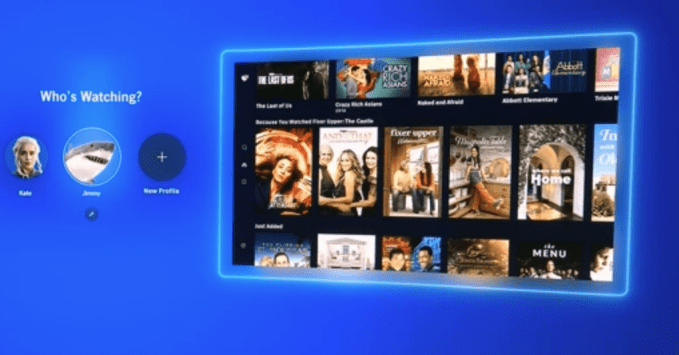Warner Bros. Discovery (WBD) launched Max to U.S. subscribers on Tuesday, giving them access to 35,000 hours of content—more than double the amount that HBO Max offered.
Beginning today, a large portion of HBO Max subscribers will be automatically upgraded to Max, whereas other customers will have to download the new streaming app manually. All HBO Max users will have their previous plan details, profiles, settings and other preferences – like their “Continue Watching” and “My List” titles – migrated to the new platform.
The revamped streaming service will roll out in Latin America later this year and then to more markets in 2024, such as Europe and Asia-Pacific.
What is the cost of Max?
For the most part, Max is the same price as HBO Max.
However, there’s also a third, higher-priced tier, “Max Ultimate Ad Free,” which is $19.99 per month and has 4K HDR video quality, immersive audio with Dolby Atmos, the ability to watch on four devices at the same time and 100 offline downloads.
HBO Max subscribers had access to 4K content with the former ad-free plan. They are now required to pay an extra $4 to get high-quality content. “Max Ad Free” is $15.99 per month yet only comes with HD video resolution.
WBD announced Monday that there will be over 1,000 movies and episodes available in 4K, which is 8x more content than HBO Max. Titles include “Game of Thrones,” “The Last of Us,” “Black Adam,” “The Suicide Squad” and franchises like Harry Potter, The Lord of the Rings, The Dark Knight and The Matrix.
Also, “Avatar: The Way of Water” will premiere on Max on June 7, letting Ultimate subscribers stream the “Avatar” sequel in 4K UHD, HDR 10, Dolby Vision and Dolby Atmos.
The ad-supported tier, “Max With Ads,” is $9.99 per month and allows subscribers to watch content simultaneously on two devices, HD video resolution and 5.1 surround sound quality. Unfortunately, the ads plan doesn’t provide offline downloads.
Speaking of ads, the company introduced new ad formats for advertisers during this year’s Upfront presentation.
In addition to traditional pre-roll and mid-roll ads, advertisers also get new interactive options. This means Max subscribers can interact with things like pause ads, which are ads that appear when users hit the pause button; “one-click reveals,” an ad that reveals a surprise message, promotion, or trivia answer; carousel ads that display multiple products; extendable ads, which are immersive for users and “locator” ads, where users can learn about nearby merchants in their area.
What new features does Max offer?
The platform brings a ton of new features and updates for users to enjoy, including more personalization, an improved home page, a more straightforward navigation menu, better performance and more.
Starting with a personal favorite, Max is giving subscribers over 350 new profile avatar options for them to represent their favorite TV or movie character. Users can now customize their profile to have an icon of Joel (Pedro Pascal) from “The Last of Us,” Logan Roy (Brian Cox) from “Succession,” Jon Snow (Kit Harington) from “Game of Thrones” or Tanya (Jennifer Coolidge) from “White Lotus.”
Other characters include those from Harry Potter, Justice League, “The Big Bang Theory,” “The Sopranos,” “Friends,” “House of the Dragon,” “Insecure,” “Hacks,” “The West Wing,” “Peacemaker” and much more. There are even kid-friendly options like “Sesame Street,” “Scooby Doo” and “Tom & Jerry.”
WBD previously revealed that it’s adding default kid profiles for new subscribers as well as the option to limit certain content based on the child’s age– little kids, big kids, big kids plus, pre-teens or teens.
The new avatars are a step up from HBO Max’s limited profile customization options, such as changing the color background and adding the user’s name. Subscribers on the HBO Max mobile app could replace the icon with a photo from their library.
Max will update and switch out the profile avatars over time, the company told TechCrunch.
During a demo of the platform, we also learned that the profiles have a new “spotlight” effect, featuring a blue circle around a selected profile.
Although Max’s overall interface will have a similar design to HBO Max, there are key differences. Besides the new blue background, the home page, content details pages and navigation menu also got makeovers.
The Max home screen now features dedicated rows for categories, genres and brands. HBO Max hid all the genres in the navigation menu. Additionally, Max’s navigation menu has been slimmed down to three tabs — Home, Movies and Series — compared to HBO Max’s 35+ selections.
Navigating from episode to episode is also easier since Max includes the “More Episodes” button within the content itself. So if a user is watching an episode and wants to jump to a different one, they can simply click the button at the bottom of the screen instead of clicking out of the video and going to the details page.
The detail pages for each TV show were upgraded as well. Previously, if HBO Max users wanted to read the description of an episode, they would have to jump to a separate page. Now, the description pops up on the side of the screen.
Once a viewer has finished a movie or the final episode of a season, Max has a new end card for recommendations, where users can scroll through similar titles. If users want to add a recommended film or show to their list, they can just hold the OK button on their remote.
Beginning in mid-June, WBD said it plans to roll out additional updates every few weeks. The upcoming features will be based on consumer feedback, the company noted.
In terms of performance, Max was built on a new code base to ensure more stability across all devices. As a result, the company plans for its new app to be at least 20% faster than HBO Max.
When speaking with WBD chief technology officer Avi Saxena and chief product officer Tyler Whitworth earlier this month, TechCrunch reported that Max uses four CDNs (content delivery networks) to help speed up content delivery. HBO Max experienced crashes before, such as the “Euphoria” Season 2 finale and the premiere of “House of the Dragon.”
If a show were to go down, the multiple CDNs allow Max to (hopefully) continue working.
What content is available on Max?
From Max Originals, Warner Bros. films and HBO titles to content from brands like HGTV, Food Network, Discovery Channel, TLC, Investigation Discovery (ID) and more, subscribers will have plenty of content to stream.
At launch, the newest movie to arrive on the service is the DC superhero movie, “Shazam! Fury of the Gods,” which premiered in theaters on March 14.
Max also today released a new documentary, “Bama Rush,” which is centered around the sorority system at the University of Alabama; a true-crime docuseries “How to Create a Sex Scandal” and Zooey Deschanel’s new unscripted series “What Am I Eating?”
More new and upcoming titles:
- Clone High (May 23)
- German Genius (May 23)
- SmartLess: On The Road (May 23)
- Being Mary Tyler Moore (May 26)
- Sarah Silverman: Someone You Love (May 27)
- Reality (May 29)
- The Curious Case of Natalia Grace (May 29)
- Burden of Proof (June 6)
- American Pain (June 8)
- First Five (June 9)
- The Stroll (June 21)
- Downey’s Dream Cars (June 22)
- The Penguin (TBD)
- And more.
Max will continue adding more titles to the service. The company claims that it will continuously update the platform, releasing an average of over 40 titles and seasons every month.
The company has previously revealed a slate of exciting new content based on popular IP, such as Game of Thrones, The Lord of the Rings, Harry Potter, Sherlock Holmes, The Big Bang Theory, The Conjuring and Stephen King’s “It,” among others.
WBD has yet to disclose the details surrounding its live sports offering on Max.
While a majority of Discovery+ content will be available on the new service, that doesn’t mean the company is shutting down Discovery+. Instead, the sister streaming service will continue as a standalone offering.
Max makes its debut in the U.S. to give subscribers 35K hours of content by Lauren Forristal originally published on TechCrunch








